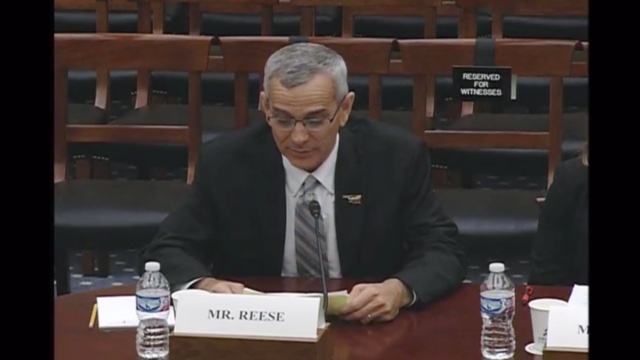
Agricultural News
Oklahoma Secretary of Agriculture Stands Up for Farmers
Fri, 01 May 2015 08:02:05 CDT

Oklahoma Secretary of Agriculture Jim Reese recently traveled to Washington, D.C. to provide testimony to the US House Subcommittee on Environment chaired by Oklahoma Congressman Jim Bridenstine of Tulsa. Reese was introduced to the committee by former US House Committee Chair Frank Lucas.
In his remarks, Reese said lowering the ozone level to 60-65 parts per billion as proposed by the Environmental Protection Agency (EPA) would mean greater costs to Oklahoma's farmers and ranchers in retrofitting engines, increased costs for dairy barns and poultry houses and possibly curtailing pesticide and fertilizer applications.
"One of the most critical issues in agriculture today is timing," Reese said. "Planting, applying pesticides and fertilizers and harvesting are critical decisions that cannot be made timely with EPA prescribing the formula."
Reese testified that even though American agriculture has never been more efficient, it must continue that progress in order to feed a growing world. He stressed that the Clean Air Act directs that standards should be based on criteria necessary to protect public health.
"One of the three most necessary ingredients to protect public health is food. Many may think that food just appears in grocery stores, but it does not," Reese said.
He noted that ozone levels have been moving in the right direction for the past 20 years by people working together. Providing the safest, most affordable food supply in the world requires a great deal of commerce that both cleans the air and contaminates the air. Fertilizer, transportation, diesel fuel, food processing and food shipment are all necessary steps to put food on the plates of Americans.
"I am thankful for the efforts EPA and Americans have invested in protecting and improving our precious air and water resources," Reese said. "However, at some point we have to stop and consider competing interests in protecting human health, natural resources, our food supply and our economy. When does government finally decide it can't know all of the answers?"
WebReadyTM Powered by WireReady® NSI
Top Agricultural News
More Headlines...




















